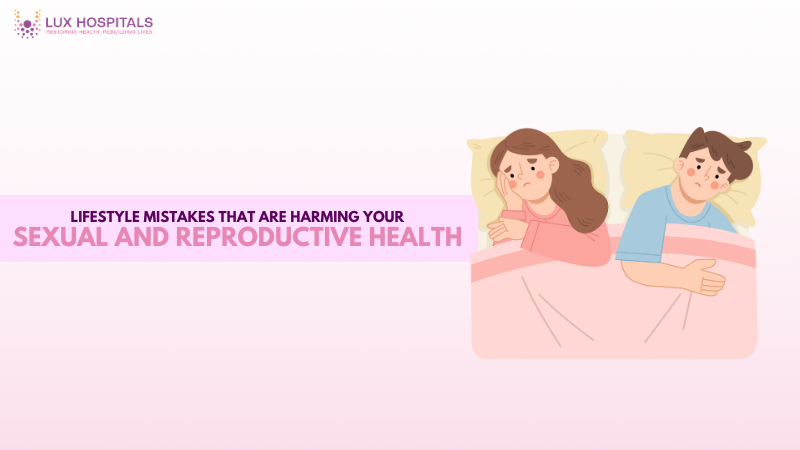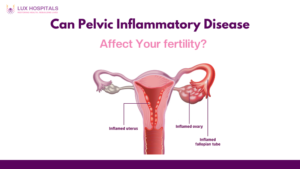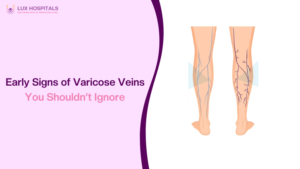5 Lifestyle Mistakes That Are Harming Your Sexual and Reproductive Health

Even minor lifestyle decisions can have a big impact on sexual and reproductive health. Unbeknownst to them, many men and women develop behaviors that subtly impair their fertility, hormone balance, and general sexual health. The good news? These errors are preventable and, for the most part, correctable. Here are five common lifestyle mistakes that could be harming your sexual and reproductive health—and what you can do about them.
Hidden Impact of Bad Habits on Male Reproductive Health
Your daily lifestyle choices play a bigger role in your sexual and reproductive health than you might realize. Some everyday lifestyles, like a poor diet or stress, can disrupt hormone equilibrium, lower fertility, and lower sexual gratification. Overall long-term health and well-being can be severely affected by early diagnosis and adjustment of such lifestyles.
1. Lack of Physical Activity
Physical inactivity ranks as one of the largest factors in bad reproductive health. Exercise keeps hormones in balance, increases blood flow to the sexual organs, and keeps a healthy weight all vital to fertility and sex drive.
Effects of inactivity:
- Decreased testosterone levels in men
- Lowered libido in both men and women
- Increased risk of erectile dysfunction
- Hormonal imbalances that affect ovulation in women
Solution:
Include at least half an hour of moderate activity most days of the week. Walking, cycling, swimming, and strength training all help improve blood flow and balance hormones.
2. Poor Diet and Nutrient Deficiency
What you eat directly impacts your reproductive health. Diets heavy in sugar, processed foods, and bad fats can cause insulin resistance, obesity, and inflammation all of which interfere with hormone production and sexual function.
Nutritional red flags:
- Low intake of zinc, folate, omega-3s, and antioxidants
- Excessive alcohol, caffeine, or processed food consumption
- Irregular eating patterns
Solution:
Consume a diet high in whole grains, fruits, vegetables, lean meats, and healthy fats. For healthy sperm, eggs, and hormone levels, nutrients including zinc, vitamin E, and omega-3 fatty acids are necessary.
3. Chronic Stress and Sleep Deprivation
Stress is a quiet killer not just of your mind, but of your love life too. Cortisol, the stress hormone, kills off testosterone, estrogen, and ovulation cycles. Lack of sleep then worsens the condition by draining energy and eroding sexual desire.
Adverse effects:
- Low energy and libido
- Hormonal imbalance
- Delayed ovulation or irregular periods
- Erectile dysfunction or premature ejaculation
Solution:
Prioritize 7–8 hours of good sleep and include stress-reducing activities like mindfulness, yoga, journaling, or counseling. Stress management is required for a healthy reproductive system.
4. Smoking, Alcohol, and Substance Use
Tobacco, excessive alcohol, and recreational drug use are all directly linked to sexual dysfunction and infertility. These drugs destroy blood vessels, upset hormones, and annihilate the sperm or egg quality.
Long-term effects:
- Low sperm count and impaired sperm motility in males
- Irregular menstruation and low ovarian reserve in women
- Greater chance of miscarriage or birth abnormalities
Solution:
Quit smoking, limit alcohol to moderate levels, and avoid recreational drug use. Seek professional help if needed
5. Ignoring Regular Health Check-Ups
Many people delay doctor visits until problems arise, but reproductive health issues often develop silently. Skipping routine screenings and tests can lead to late diagnoses of conditions like STIs, hormonal disorders, or even cancers.
Risks of neglect:
- Untreated infection caused by infertility
- Missed diagnoses of hormonal imbalance
- Late diagnoses of testicular, prostate, or cervical disease
Solution:
Annual follow-up with your urologist, or family physician is recommended. Early diagnosis is the secret to maintaining sexual and reproductive health.
Conclusion
Your sexual and reproductive health are significantly impacted by your daily routine. Despite the fact that these five errors are frequent, the good news is that they may be fully avoided with awareness and dedication. Making better decisions is an investment in your general health and future fertility, not just in your sexual life.
Sexual and reproductive health isn’t just about avoiding disease; it’s about thriving in every aspect of your personal life. Whether planning a family or simply wanting to feel more balanced and energized, these changes will help you take control of your well-being. Don’t wait for symptoms to show—start supporting your sexual and reproductive health today.
FAQs
What are the signs of poor sexual and reproductive health?
Low libido, erectile dysfunction, irregular periods, painful sex, and infertility are some of the symptoms. These symptoms frequently indicate hormonal imbalances or underlying medical issues. Many of these problems can be managed or even reversed by seeking medical assessment early.
How can I naturally boost my sexual and reproductive health?
Stress reduction, consistent exercise, a healthy diet, and quality sleep contribute to better reproductive wellness. Avoid dangerous substances like smoke and excessive alcohol consumption. Key. Natural supplements, such as zinc, folate, and omega-3 fatty acids, may support hormonal function.
Does age affect sexual and reproductive health?
Yes, fertility and hormone levels decline with age for both men and women. Women experience a more pronounced drop during menopause, while men face gradual testosterone decreases. Maintaining a healthy lifestyle can slow age-related decline in sexual and reproductive health.
Can mental health affect sexual and reproductive health?
Mental health conditions like anxiety and depression can lower libido and disrupt hormonal balance. They can also reduce the motivation to maintain healthy habits. Seeking therapy or counselling can improve both mental and reproductive wellness.
How often should I get tested for STIs to protect my sexual and reproductive health?
Low libido, erectile dysfunction, irregular periods, painful sex, and infertility are some of the symptoms. These symptoms frequently indicate hormonal imbalances or underlying medical issues. Many of these problems can be managed or even reversed by seeking medical assessment early through a screening schedule.



















